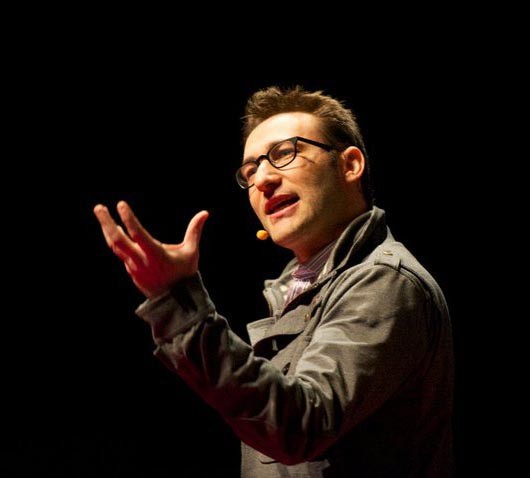The failures of TED’s approach to merging education and entertainment sacrifices the former for the latter.
Never before have the worlds of entertainment and education been so closely intertwined than today. In the years following the birth of the internet, an explosion of creative energy mixed with an enthusiastic desire to spread knowledge to the corners of the world, leaving no demographic or audience untouched. In this shift, no organization has been surpassed in optimism and output than TED Talks, a nonprofit organization dedicated to bringing speakers on all assortments of topics, from leadership (Simon Sinek’s talk “How Great Leaders Inspire Action”) to flying robots (Vijay Kumar’s lecture “Robots that Fly… and Cooperate”).
Over the hordes of inspirational speakers and excited, popular, science experts, one becomes overwhelmed with a feeling of sameness in the approach, regardless of the subject. Rather than serving as a collegial and open-ended conference of thinkers and revolutionaries coming together to analyze and disseminate the greatest discoveries and developments of the day with the interests of education at the forefront, it seems the entertainment angle has quickly grabbed the focus away.
No longer are potential changes in visual interfaces interesting; They are “paradigm shifting,” and TED Talks are not reviewed by the audience on the principles of objectivity or accuracy; They are instead voted into categories such as “jaw-dropping” or “beautiful.”
Related: InnovateUA hosts series of TEDxLive talks
The problem with TED Talks is not that science and education are not interesting; it’s that TED’s format of simultaneous learning and entertainment is taken advantage of so easily, rendering each and every one of its lectures questionable.
In their own words, “In fact, everything we do—from our conferences to our TED Talks to the projects sparked by the TED Prize, from the global TEDx community to the TED-Ed lesson series—is driven by this goal: How can we best spread great ideas?” The mission of their nonprofit is to spread knowledge. To be entirely fair to them, they accomplish this with flying colors.
A brief look at their Youtube channel will reveal a subscriber pool of almost 7 million people and over 2,000 videos up online, with people all around the world contributing and watching. The greatest problem behind this mission of spreading knowledge is that it fails to differentiate education and entertainment.
TED Talks from inspirational speakers and self-help experts border on the comical in their attempts to convince you just how wrong your life is and how easy it is to fix so long as you make the appropriate purchases and read the right books, conveniently written and endorsed by the speaker. Beyond the cynical self-advertising power the platform offers, a greater tragedy is created: the idea of placebo change.
This concept was covered by Benjamin Bratton, a professor from the University of California, San Diego, who used his time on stage during a TED talk to forgo advertising his recent papers and books in favor of discussing the failures of the TED Talk medium. Citing the viral action behind the Kony 2012 movement, Bratton said, “Okay, so, what happened here? Evangelical surfer bro goes to Africa. He makes campy video explaining genocide to the cast of Glee. The world finds his epiphany to be shallow to the point of self-delusion. The complex geopolitics of central Africa are left undisturbed. Kony’s still there. The end.”
Related: UA Online offers student an alternative way to learn
He added, “When inspiration becomes manipulation, inspiration becomes obfuscation. … You should be as skeptical of placebo politics as you are of placebo medicine.” Bratton states that the most dangerous aspect of this field of “edu-tainment” is that it leans so heavily on the entertainment side that it allows the facts to be trampled in the name of attracting more views and increasing site traffic.
Rather than enlightening the world in the style TED has been advocating, all these talks accomplish are momentary and emotional heights that blind and burn out the creative possibilities of their viewers. This distracts from educational potential in the name of “jaw-dropping” and “exhilarating” content meant to “awe” rather than inform.
Once the platforms meant to educate have been surrendered to the cause of nihilistic self-indulgence and applause-seeking; it is no longer cynical to see cause for alarm. Rather than denounce the morally righteous and commendable initiative of the TED foundation, it is important to be able to recognize the failures found in its execution, not its planning. So the next time you find yourself being told about the most recent paradigm shift, try to look past the veneer of credibility and truly understand what is being said.
Follow Alec Scott on Twitter.









